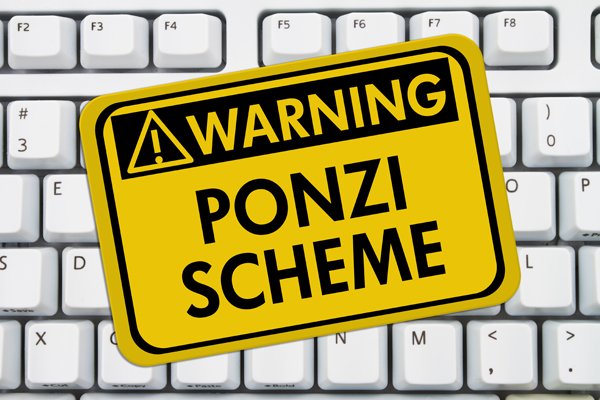
Lessons from OneCoin As with any immature and unregulated industry, con artists will attempt to jump in and make a quick buck from manipulating inexperienced investors. One way of executing such a crime is by designing an MLM ponzi scheme, such as Onecoin. Last year, 59 such schemes were uncovered in the USA alone with losses totalling 2.4 billion USD. Onecoin, E-coin and Billion Coin are all recent examples of successful ponzi schemes that have ‘stolen’ millions of dollars claiming to be true cryptocurrency programs.
So question is – what have we learnt from these schemes and how do we recognize ponzi schemes such as OneCoin in the future? Here are some clear warning signs:
1) High investment returns with little or no risk. Any time investment returns are guaranteed, this is officially a scheme. Some ponzi schemes will promise a possible range of returns to try and avoid scepticism, but global investment laws prohibit such promises.
2) The Team – Who are the team behind the coin you are buying? Doing your own due diligence is vital! Onecoin does not list or publicise their team members anywhere online and this raises serious concern. Dr. Ruja Ignatova was the CEO of OneCoin before Pablo Munoz (who already served as VP for several other MLM companies) was appointed the CEO. Most new crypto currency projects do a great job a being transparent by listening team members and attaching their LinkedIn profiles for increased clarity and credibility.
3) Coin storage. True cryptocurrencies are transferable at will. If you are not aloud to hold your own coins in your own wallets, then you are participating in a possible ponzi scheme.
4) Complex and Secret strategies. (Trading bots) Anytime a company is not 100% clear as to how they are using your funds to make returns, then this is a warning sign. For example, bitconnect claim to have a trading bot that makes anywhere between 0.50% and 1.5% a day, however, nobody has ever seen this bot and bitconnect have released zero information on strategies. So always make sure that you are investing into a company that is 100% transparent on how profits are generated.
5) Affiliate Fees – Any time an investment program offers a very high introductory or affiliate fee this is another red flag. Introductory commissions ranging between 15% and 30% are signs of a pyramid scheme, which are illegal in most countries and certainly not sustainable. I personally stay away from any crypto programs that offer referral fees.
In conclusion, do your due diligence before investing by doing some research on the founding team, their experience and expertise. I advise doing a linkedin search for key members of these so-called ‘companies’. Make sure you can receive your coins and hold them in your own private wallets. Remember, if it’s too good to be true, it usually is.

Thank you for writing this.